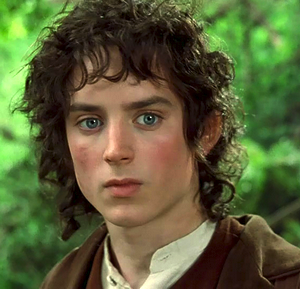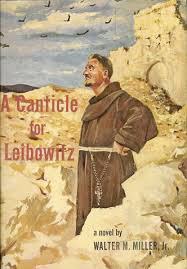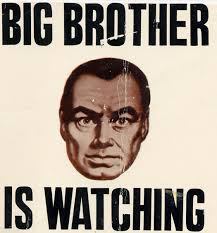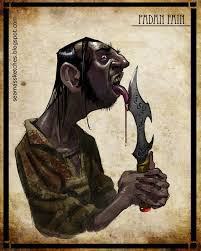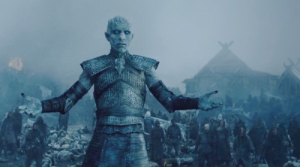Chris Sarantopoulos's Blog, page 12
April 17, 2016
Thoughts on the upcoming publication
It’s been a while since I wrote a short story. The reason is I’ve been busy with life and drafting the next novel. I’ve also been editing my synopsis, my query letter, trying to find more agents that might be interested for a story like The Darkening, etc. The list goes on and on.
So I’m really excited that one of my older short stories is only five days away from publication. This coming Friday the 22nd, Bride of Chaos will publish my story, Whisps of Memory, in their 12th issue of 9 Tales told in the Dark, along with eight more stories. As the title of the publication suggests, this is a collection of horror stories, and the genre may not be something everyone likes.
But thinking about this story and how long it took to get published, how many magazines I had to research through The Grinder before I found one that was a good match, I couldn’t help but notice how few magazines there are out there compared to the number of writers. And again, to a certain extent, I think it comes down to the fact that magazines and small presses need our support to survive. I talked about the importance of these presses and magazines in an older post, so I won’t bore you by repeating myself. But I will stress the need for these markets to carry on doing what they do. A few weeks back I learned that yet another magazine, one that had published one of my stories in the past, closed permanently. The main reason was lack of readership, which of course resulted in lack of funding.
If you’d like, talk to your friends and families, ask them if they can spare the money to occasionally buy an issue from a lesser known magazine. This upcoming publication also needs our support. Just to be clear, I’m not trying to make you give me money by buying the issue my story’s included. No. I was already paid for my story, and I intend to return some of that money by buying the issue, just like any other reader. There are no royalties involved or any other form of gain for me, except knowing my story will reach an audience (you can check their submission guidelines if you don’t believe me). What I am saying is that it’s important you help and support small magazines, so writers like us – all of us – can continue publishing our works and experiencing that warm and fuzzy feeling inside. You know the feeling I’m talking about. I know all of you experience it every time you publish something, be it self-published or otherwise. If you still think I’m trying to make you buy this particular book, go to amazon, type “magazine” in the search bar, choose your favourite category from the list on the left, and buy whichever literary magazine you like. Who knows? You may come to like some of the stories there, perhaps even discover a writer whose style is closer to what you like.
G
M
T
Detect language
Afrikaans
Albanian
Arabic
Armenian
Azerbaijani
Basque
Belarusian
Bengali
Bosnian
Bulgarian
Catalan
Cebuano
Chichewa
Chinese (Simplified)
Chinese (Traditional)
Croatian
Czech
Danish
Dutch
English
Esperanto
Estonian
Filipino
Finnish
French
Galician
Georgian
German
Greek
Gujarati
Haitian Creole
Hausa
Hebrew
Hindi
Hmong
Hungarian
Icelandic
Igbo
Indonesian
Irish
Italian
Japanese
Javanese
Kannada
Kazakh
Khmer
Korean
Lao
Latin
Latvian
Lithuanian
Macedonian
Malagasy
Malay
Malayalam
Maltese
Maori
Marathi
Mongolian
Myanmar (Burmese)
Nepali
Norwegian
Persian
Polish
Portuguese
Punjabi
Romanian
Russian
Serbian
Sesotho
Sinhala
Slovak
Slovenian
Somali
Spanish
Sundanese
Swahili
Swedish
Tajik
Tamil
Telugu
Thai
Turkish
Ukrainian
Urdu
Uzbek
Vietnamese
Welsh
Yiddish
Yoruba
Zulu
Afrikaans
Albanian
Arabic
Armenian
Azerbaijani
Basque
Belarusian
Bengali
Bosnian
Bulgarian
Catalan
Cebuano
Chichewa
Chinese (Simplified)
Chinese (Traditional)
Croatian
Czech
Danish
Dutch
English
Esperanto
Estonian
Filipino
Finnish
French
Galician
Georgian
German
Greek
Gujarati
Haitian Creole
Hausa
Hebrew
Hindi
Hmong
Hungarian
Icelandic
Igbo
Indonesian
Irish
Italian
Japanese
Javanese
Kannada
Kazakh
Khmer
Korean
Lao
Latin
Latvian
Lithuanian
Macedonian
Malagasy
Malay
Malayalam
Maltese
Maori
Marathi
Mongolian
Myanmar (Burmese)
Nepali
Norwegian
Persian
Polish
Portuguese
Punjabi
Romanian
Russian
Serbian
Sesotho
Sinhala
Slovak
Slovenian
Somali
Spanish
Sundanese
Swahili
Swedish
Tajik
Tamil
Telugu
Thai
Turkish
Ukrainian
Urdu
Uzbek
Vietnamese
Welsh
Yiddish
Yoruba
Zulu
Text-to-speech function is limited to 100 characters
Options : History : Help : FeedbackClose
Filed under: Published work, Uncategorized Tagged: literary magazines, magazines, novel, publication, published, short story, story, writing








April 10, 2016
Minor update
I have finally managed to get on track with the new WIP (provisional title Through Stranger Eyes) and be as productive as I want to be.For the past couple of days, despite every distraction imaginable, I have managed to produce 2k words solidly. I can’t tell you how happy that makes me feel. Yeah, I know it’s no big deal, but I had started doubting myself and the story I was trying to write. I mean, it took me hours to put 1k words down, when for my previous book (it feels so nice to be able to say “my previous book,” doesn’t it?) I used to churn 1k words in a little over an hour and a half, maybe two, if I was distracted.
The draft (so far about 21k words) is still not as great as it could be, and chances are I’m going to have to revise and rewrite to similar extent as I did with The Darkening (honestly, I hope not), but I’ve come to accept a simple fact; I can not produce a good first draft. That’s fine. First drafts are what the phrase implies, meaning only the first step of something better. It’s like digging a hole in the ground. It’s not pretty when you’re done, but what matters is what you build afterwards. I still don’t have a good feel for the characters (which was the case with The Darkening as well), but I’m getting there. I might also need to take a step back from the tight POV I’m using at the moment (the same as I used for the previous book), probably choose a more traditional POV, one where the main character can have after their dialogue the invisible tag “s/he said.” But I’m not worried so much about that now. The transition, if I do end up making it, will not be as hard as it was for The Darkening. I think I have also figured out which of the first scenes I’ll delete or merge with others, which means the story resonates better with me now, hopefully even more as I keep going. Overall, I’m satisfied, mainly because I feel productive.
I think one of these days, I’m going to have to publicize the board I’ve been using on Pinterest with images related to cyberpunk and the setting as I imagine it. Are you using any such boards or images when writing about another world (those of you who write fantasy or sci-fi)? Perhaps Google street view when you’re writing about places in other countries? I have found this method to be very helpful.
Filed under: Uncategorized Tagged: drafting, fantasy, novel, novel writing, revisions, scifi, The Darkening, Through Stranger Eyes, writing








April 3, 2016
Inspirational prompt 23
At the end of this post is a poll. I’d like to hear your opinion.
What do you think? A daredevil perhaps? A bet gone awfully wrong? Or perhaps a bet the stuntman is going to win and silence those who thought him/her crazy? Could it be the epitome of a professional juggler’s career where he was always bested by someone else? Could it be an illusion? Something someone else sees, perhaps a person who has always lived life in a very protected environment, snapped, and now sees things that aren’t there, things like that? Or what if this is a different version of Pennywise the Clown?
Now, the poll. What do you prefer the most, when it comes to inspirational prompts like this? A picture or a few lines of prose of one possible story to get you started? Perhaps a combination? I’d really like to know what you like.
Filed under: Inspirational Prompts Tagged: inspirational prompts, novel, poll, stories, writing








March 27, 2016
Outlining methods
Are you a writer who outlines or a pantser? I’m not going to go into which method is best, and certainly nowhere near things like “do this” or “try that.” Whatever method you have chosen, as long as it works for you and you and you’re productive, keep it. For those who prefer to outline (like myself) or those pantsers who would like to have a try at outlining (for whatever reasons that may be), I think this post by Now Novel may be informative and helpful. Keep in mind, these are just some of the methods. I know people who use nothing more than simple bullet points. I know others who mix two or more of these methods, like I do (7-point system and snowflake method). I also use different methods depending on the length of the story I’m dealing with. For example, I use the 7-point system for almost all my short stories, but a combination of snowflake (not all the steps) and 7-point system. I have found these two to be the most helpful when I need to get a better feel for a story. For the current novel I’m working on (Through Stranger Eyes), I have also employed the use of character sheets that allow me to delve deeper into a character and come up with answers about speech patterns, clothing, catch phrases, and even go as far as figuring out MBTI personality types, though the information on these sheets is not directly related to the plot. They do help a lot, however. So keep in mind that more than one method may serve your needs. I hope this helps you as much as it has helped me.
Plot outline creation: 7 smart methods
Filed under: Advice Tagged: novel, outlines, pantser, Plot, plot outline, Through Stranger Eyes, writing 







March 20, 2016
Lessons learned from Twitter pitch events
If you’ve been following me on twitter, or if you noticed my twitter feed to the right of this page (no, I’m not trying to make you follow me on twitter, but it doesn’t hurt to point out that I do have an account there, does it?), you probably noticed some strange things I posted. They were my pitches for the latest event, #pitmad, organised by Brenda Drake. Have you participated in any twitter pitch recently or in the past? If not, I can tell you they are fun. If you have, then you know it’s heartbreaking not to receive a heart icon (heart icon stands for “favourite,” which means the agent/editor who favoured your pitch wants to see more of your work).
BUT
Through rejection you can pinpoint some of your weaknesses, which in turn means you can improve your skills. For instance, a week or two prior to pitmad, I participated on #p2p16 for a chance to work with an editor for a month before a new round with agents would begin. Two out of the four agents I submitted my work to gave brief but very helpful feedback. They both said the same thing: my query sucked. But they also said another thing about the actual writing, which had me worked up to that moment. They said my sample pages were good. In fact, one of them called my writing “strong with great intensity.” Now, to a new writer like me, these are probably the best words any professional could ever say (yes, I did save that email for the rainy, self-doubting days). But they also pointed out my weakness, which is more important.
I’m not going to lie to you, I was angry at myself for not getting the query right after almost fifteen, if not more, rewrites. In fact, I honestly thought the last version was THE ONE.
Errmm… No! The joke was on me.
Thanks to p2p16 I now know where I have to focus my efforts. Can you imagine what it would be like to constantly have that nagging feeling at the back of my head that maybe my writing was the one that sucked, which would mean I’d have to rewrite the whole book again? For the fourth time? As much as I don’t mind editing, I don’t think I’d be able to change the entire book again.
Thanks to pitmad I now know my twitter pitches also suck. The good thing is, I don’t fret over it much. Why? Because most people can’t pitch something nice in 140 characters, minus the characters for the hashtags. Likewise, most normal people can’t tell if something’s good or bad from 140 characters of text. I’m in the same boat as everyone. It’s also a small, albeit valuable, taste/lesson of the rejections that are bound to come once I start querying the agents on my list. It helps toughen up in ways that rejections from magazines could never do.
So even though I didn’t make it through to the next round of any of those contests, I still got to gain and learn something.
If you’re interested in participating in any twitter events like the two I mentioned above, have a look at http://carissa-taylor.blogspot.gr/2013/01/contest-madness.html for the dates of some of the upcoming pitching events. It’s not a complete list, so if you have found another one, please share with the rest of us here :)
Filed under: Advice, Uncategorized Tagged: novel, p2p16, pitmad, practice, stories, twitter, twitter pitches, writing








March 13, 2016
Inspirational prompt 22
So what do you think happened here? An accident? An argument that led to a fight? That’s one possibility. I like fantasy and sci-fi because I can “abuse” the what if question and go beyond the bounds of our real world. So, forget the curb of the pavement for a while and imagine him in the country. What if someone’s chasing him and the kid in the picture does what we used to watch in old western movies, the hero listening for vibrations through the ground? Why would someone chase him? Did he steal something? Something valuable? OK, but what if what’s valuable to him may be life-giving for those after him? What if he has travelled to a strange land, and the ground shakes under his feet? Ominous sounds or not? Maybe, if it’s a sound he hears, it’s a voice or a scream. Maybe the land is communicating with him, so he lies down and listens. What if he has overheard a secret, a word so powerful that whoever could utter it would control and shape the world around him? A word that is in the rainwater, and is the answer to everything everyone has ever wanted to know? Does he seek that knowledge for himself? To save his town, country, loved ones? To see through a task so difficult that entire armies have failed before him?
I’m sure there are other things you can come up with. Try :)
Filed under: Inspirational Prompts Tagged: fiction, inspirational prompt, novel, prompt, short stoy, writing








March 6, 2016
Yet another update
I’ve been going over my new WIP’s plot structure. Turns out the story I have in mind may or may not be a mystery after all. To force it towards it may be catastrophic for the story. I mean, there are mystery elements in the story, a constant “who’s doing these things?” and “who’s behind everything,” but certainly not a clear whodunit plot. In the end, it may end up being a thriller rather than mystery. In my mind, I still consider it a mystery though. At least that’s how it plays out in my head at the moment, as I read through my notes. I’m just not sure how agents and editors would categorise such a story. I have a provisional title for it; Through Stranger Eyes. Yeah, I know, not the best title, but I absolutely suck at coming up with titles. Hopefully I will have found a better one by the time it’s finished. Now, I haven’t started drafting anything, just trying to make sure I have patched as many plot holes as possible early on. I’ll need to get to know the characters a little bit better as well before I start drafting scenes. So for the time being I have my plate full with this.
Oh, before I forget, the story I told you about last time, the one 9Tales Told in the Dark will publish, is due on 22 April. If you can afford it, and are willing to support new writers, then you can pre-order the issue here. If you’re interested in any of my other stories, you can find them under the link PUBLISHED WORK at the top of the page. I ‘ll update the page and include the link I gave you shortly.
Filed under: Published work, Uncategorized Tagged: getting published, novel, plotting, published, short story, writing








February 28, 2016
VILLAINS AND HEROES – A LIST OF PERSONAL FAVOURITES (not what you might expect)
I’m sure all of you have a list of personal favourites in the stories you’ve read (or written). Here’s my list.
Be warned, there may be spoilers along the way.
HEROES
1. Raistlin Majere
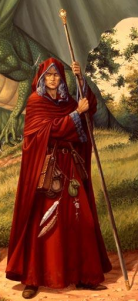
He is one of the heroes in the core set of books for the Dragonlance saga. Though his role is somewhat ambiguous and is often driven by personal gain over the needs of the team, I can’t help but favour him over everyone else in the group. To be honest, he is more of an anti-hero. If you haven’t read the books yet, I can
assure you there will be times where you won’t know for sure if what he does benefits anyone but himself. But that’s what makes him one of the best, as far as I’m concerned.
2. Frodo Baggins
The smallest of humanoids in Tolkien’s world is tasked with completing the hardest quest ever. I imagine you have watched the films by now, but if you haven’t, Frodo is the main character in The Lord Of The Rings. He is dedicated, well aware of the risks, and almost never falters. Technically, he is battling with the will of an immortal Valar/Ainur (Sauron), which makes him one of the protagonists with the purest heart and mind probably ever written.
3. Anasurimbor Kellhus
So another character from another epic fantasy. Do you see a patern here? :) Anyway, if you’re into fantasy but not familiar with R. Scott Bakker’s masterpiece (in my mind at least), Prince of Nothing, then shame on you. The first book is called The Darkness That Comes Before. Anasurimbor is a monk in the world Bakker created, who has the power of persuation and manipulation through logic and deduction over the rest of Men. In fact his entire race is like him, though very few of them remain, following an event that decimated the human population known as the Apocalypse. I won’t give you any spoilers, but lets just say he manages to shape the world around his will. Be prepared to delve into some heavy philosophical thinking while reading the books.
4. Brother Francis Gerard
This is a character out of the work of Walter M. Miller’s A Canticle for Leibowitz. He is the first of the three characters to guide the reader through a post-nuclear devastated world. The story begins sometime in the 26th century and continues with events taking place every 600 years after that (31st century), then 600 years later (37th century). Why he is dear to me? Because he is the simplest in mind and most innocent of the rest of the narrators, the purest of heart, and is the one who shapes things for the other main characters. The closing pages of the book (in the 37th century), makes a full circle with the MC of that time frame, holding the remains of Brother Francis Gerard in his hand and realising a fundamental truth about humans; a truth Francis Gerard learned the hard way. It’s a sad book, but excellently written.
5. Tyrion Lannister – Bran Stark
Chances are if you haven’t read the books you probably have seen the show. For those of you who opt for the show… read the books. It’s hard to choose between Tyrion and Bran. Who’s best? I honestly think Bran is destined for supreme power, though something like that always comes with a price. G. R. R. Martin convinced me of this, the moment I read A Game of Thrones (the first book in the A Song of Ice and Fire saga, where Bran is having the last dream before he came out of his comma, the one with the crow, and starts experiencing a power
greater than just being a warg. I wouldn’t be surprised if he ended up ruling some of the supernatural world. That is of course, if Martin doesn’t kill him… I’d be VERY annoyed if that happened.
Tyrion on the other hand, though without any such power, he is the master of… well, everything man-made as far as I’m concerned. If you were to run a country, kingdom, or state, he is the person you want to be by your side. He too shapes the world around him, though from behind the scenes. Honestly, I can’t decide who’s better between the two.
VILLAINS
OK, so this list is going to be shorter than the previous one. Not that many awesome villains to go around for my tastes. Perhaps it’s also because the villains in a lot of the books I’ve read are not people, but a hostile environment, a supernatural entity, or a group of people rathen just an individual. Maybe it’s because I’m too demanding from the bad guys.
1. Pennywise the Clown
I can honestly say I have never felt so scared while reading a book in my adult life. Whatever tricks Stephen King used as he was writing It, whatever pacts he made with supernatural beings, it worked. I was reading the book last summer mostly at nights, and there were moments I had to keep the lights on while reading. If I wore a hat I’d tip it at Mr King. If you haven’t read the book, It is the name a group of kids give to a supernatural entity that haunts their town and murders people. The entity appears in many forms, but the most prominent one is that of Pennywise the clown. I was looking forward to reading more of the book, while at the same time I knew it would drain the colour off my face.
2. Big Brother
Though in Orwell’s masterpiece, 1984, we never actually see Big Brother in person, since it’s more of a concept, it’s easy to understand how nasty and messed up things are when any one or any group of people want to monitor and spy on other people’s activities, thoughts, and feelings. What makes it worse is that Orwell painted a very accurate picture of our present day world, way back in 1948, and spoke of the fact that people will actually forget they live in a totalitarian world, misguided by false pretenses.
3. Padan Fain
This character lives in the world Robert Jordan created for The Wheel of Time. Padan Fain was under the service of The Dark One (in the books, those who ally with the him are called Darkfriends) and was given special powers to track down the Dragon Reborn (a name given to one of the protagonists). Now you might say “what’s so special about this dude? Sounds cliché.” He starts like this, and we all think he is an insignificant character (God knows Jordan has a thing for bringing in characters that some times are important and some times they just
disappear without a trace), BUT things change for Padan Fain. As if being a Darkfriend with special powers isn’t enough, he is possessed by Mordeth, an ancient spirit so evil that could probably match the Dark One. When the two evils met inside Padan Fain, Mordeth’s spirit merged with him instead of consuming and overtaking him. This resulted in Padan Fain succeeding in breaking his vows to the Dark One (not a small feat) and go solo (or as solo as someone with too many entities controlling him can ever be). He grew so powerful that when he entered the Ways, a world beyond reality, Machin Shin cowered from him. For the uninitiated, Machin Shin is the original name of the Black Wind that devours souls. Many had in the past entered the Ways and met the Black Wind; Padan Fain was the only one to come out of it alive AFTER the Wind caught him. Yeah, he is nasty and persistent.
4. The Night’s King
SPOILER ALERT (bigger than the previous ones)
This guy has only made his appearance in G. R. R. Martin’s Song of Ice and Fire, indirectly. If you’ve watched the show, however, you have seen him. In the books he is mentioned once or twice. Not much is known about him, but since he appeared in the show it’s probably safe to assume he will appear later in the books. I say probably because the show has gone off on a different tangent than the books almost in everything. Please don’t get me started on this. When will he appear? My guess is around the time Daenerys decides to leave Essos and march against Westeros. So, this guy was once-upon-a-merry-time the Commander of the Night’s Watch, entrusted to guard the realms of Men from the Others beyond the Wall. For those who don’t know, the Others are a humanoid race made probably of Ice and Death and able to raise the dead. Oh yeah, extreme cold is probably related to their coming, though the opposite may also be true. Why is he evil? First of all, those who join the Night’s Watch take sacred vows never to leave it, and die at their post defending the realm. In times of yonder, it was the greatest honour to be among them. When I say times of yonder, I mean during the Night’s King time. He was the commander of the Night’s Watch, so when he met the Queen of the Others and married her, well… you get the picture. He claimed one of the castles along the Wall (the Nightfort) as his own and there he reigned for thirteen years. That was 8000 years before the events of the books. The atrocities he committed are still told in the North, though in the form of folk tales. Based on his appearance on the show instead of the Queen of the Others’ I assume he is the one in charge of the frozen undead hordes that threaten to overwhelm the weakened kingdom, which means complete and utter enslavement of every living thing. You don’t want to be caught anywhere near him.
So, what about you? Who are your favourite villains and heroes?
Filed under: Uncategorized Tagged: heroes, novel, story, villains, writing








February 21, 2016
Deep Point of View
This is going to be a longer then my usual posts.
As I mentioned before, I chose to write The Darkening from a deep point of view, but only AFTER I finished the first draft AND after I rewrote the whole thing to change the plot. The reason I decided to do that was simple: John Piscus, the main character, is paranoid and he hears voices. The world and himself are his main enemies, and the best way to present this was to show his fears and thoughts (and paranoia) and survival struggle through a very tight POV. Now, I could have gone for First Person POV, but the way the story plays out (no, I won’t give you spoilers, even though I love them myself) felt like the wrong choice. So I decided to go with third person Deep POV. I had never done it before, had never written a story with that POV, and it was a challenge at first. It took me a while to figure it out.
So what does it take to write in deep third person?
1. First off, you need to spend more time than normal inside the main character’s head. You need more of the MC’s thoughts, which is a good way to show some characterisation. This is the best time to show us the way he/she thinks, certain words the MC uses, unique to him/her. To achieve this you need to spend some time with the MC, get to know how he reacts to certain stimuli. Would he/she curse if things didn’t go as expected? Perhaps accept it meekly and move on? What would drive the character to each decision?
2. Based on the previous point, it’s best to avoid having long passages of action without inner monologue. For instance: “She nodded a good morning to her assistant, opened the door to her office, sat down, and adjusted her skirt. She saw the pile of paperwork she had left for her assistant the day before was still there, unsigned. She heard her cellphone ring. She rummaged through her purse, found it and answered the call.” OK, this may not be the best example or the best writing (I’ve done it on purpose to stress some points later on), but as you can see it’s a long list of actions taking place, but we have no idea about the MC’s thoughts. Is it a call she expected? Was the caller someone she enjoyed talking to? Had someone annoyed her before? Did she enjoy having to sign all these documents, etc? It’s a good idea to insert some thoughts and feelings about things happening to the MC, otherwise the passage feels as if the reader is sitting at the other end of the room, eating popcorn, and watching a movie. It’s superficial. Not to mention the sentences don’t seem to sound/read/flow smoothly.
3. The other thing I learned while writing The Darkening, was how bad the tags “he/she thought” really are for deep POV. Lets have a look at the previous example again:
The pile of paperwork her assistant had left earlier, was still there, unsigned. Figures… why waste precious ink from our fountain pen, when Martha can do it for us, huh? It’s not like she’s got anything else to do, she thought.” Boom! The moment you insert that little tag “she thought” you dragged the reader out of the MC’s head and reminded them they are reading a book. You stole the magic. Deep POV and thought tags are not very good friends. Also, avoid using italics for the thoughts, as there’s no need. The same goes if you choose to use the “said” tag for things the MC says. If the MC is saying something to someone else, there’s no need for dialogue tags to indicate the MC is talking. Think about it; why would you tap the readers’ shoulder, take them out of the “spell” you’ve put them, and remind them that a fictional character says something, when you’ve gone into all that trouble to immerse them in the character’s head in the first place? If the MC is the one with whom we are taking this 300-400 page journey, who else would be saying his/her lines? Use action beats instead and describe what the character is doing or thinking. Do use dialogue tags for the other characters though. Otherwise, the dialogue won’t make sense.
4. Remember this post where I mentioned filter words? Remember how it was related to show, don’t tell? Guess what? It’s something you get to use here. A lot. All those filter words related to telling thoughts and telling feelings, words like see, hear, think, feel, realise, remember, watch, wonder, assume, believe, look, hope, touch etc, you want them out of your story. Use a macro to find and highlight them if you must, but they are not helping you or your strengthen your work. They have to go. If you’re in deep POV, pretty much everything not related to something happening to the character is going to be thoughts, things the MC realised, conclusions he/she makes. Readers get that. So why mention it again? It’s like having people waiting for a concert to begin when someone walks on the stage and announces they are there to watch a concert. So in the above example, “She saw the pile of paperwork she had left for her assistant the day before was still there, unsigned. She heard her cellphone ring,” you want to remove “she saw” and “she heard.” If you do that it will read “the pile of paperwork she had left for her assistant the day before was still there, unsigned. Her cellphone rang.” Everything that’s happening in that room, at that moment, is filtered through the MC’s senses so there’s no need to repeat yourself.
We all follow (or at least try to) the “show, don’t tell” rule. The same goes for words describing feelings. If the MC is terrified of something, try to avoid using the word terrify. Instead, describe the feeling. Perhaps his/her mouth is going dry, or the heart is racing. Yes, these descriptions are things everyone uses and tend to be called “clichés,” but you can come up with stuff of your own to describe the emotion.
5. Where things get a little trickier are the passages you’ve written which aren’t things the MC would say, but actually it’s writer’s intrusion. If you know your characters well enough, you ought to know what things they would say at any given time. That’s true even more for the MC. If you’ve shown your MC to be a misanthrope or a sociopath who would laugh when someone falls flat on their faces, have his thoughts, behaviour, and interaction throughout the story reflect that.
This is not the only intrusion a writer may unintentionally do. Another blatant example is when the MC is remembering things for the sake of backstory. If the scene demands the MC to recall something of his past, in other words be introspective, then by all means use it. But make sure it happens when it makes sense, when it’s the right time. In the above example, would there be any reason for the MC to remember (and tell the reader) the time she and her brother were playing in the backyard, and he pushed her and scraped her knee? How much she cried and for how long her brother was grounded for, or what she did to him to get even? Is it related to the workload waiting for her on her office? If so, then write it. If not, delete it.
6. Head hopping. Deep POV dislikes head hopping. In the example I gave, our MC can not know what her assistant is thinking. She can guess, and that’s something you can show, but not know for sure. Not unless the assistant has clearly stated whatever it is he’s thinking. Any thoughts the MC has about someone else are filtered through his/her lenses. It’s a personal opinion and if used correctly it adds more to the characterisation. Pay close attention to what is known to your MC and what is known to other characters (a.k.a. the writer). Remember, everything is filtered through the MC’s perception.
7. Prepositional phrases. I believe this is something everyone should be aware of, but it becomes more apparent when you write in deep POV. In sentences like “She slammed the door in anger,” the prepositional phrase “in anger” is problematic. First, it’s overwriting; if someone slams the door, chances are they are angry. The behaviour (slamming the door) is a good indicator of the emotion. Second and more related to deep POV, when you use something like that, which is intended to show something to the reader, that’s once again writer’s intrusion. That’s you forcing the reader to pay attention to the emotion. However, by using a prepositional phrase, instead of showing the emotion you end up telling it, so you have more than one problems there. This is probably an area I still need to work. I usually draft a story with such phrases strewn in it. Logically, the editing process should eliminate them, but I often miss identifying them as mistakes. For some reason I forget about them, and don’t spot them until several months and rejections later.
I think these points cover the basics about deep POV. If you think I’ve missed something, please share.
Filed under: Advice Tagged: deep point of view, novel, novel problem, POV, story, The Darkening, writing, writing problems








February 14, 2016
Inspirational prompt 21
I thought this photo would be a nice one to inspire you. What do you think? I usually look for images that show some kind of action in them or at the very least they appear to do so, as if the photographer caught someone in the middle of something. Now, this image is action packed, you can see it from the looks on her face, the way she scrambles away from the water. Pay attention to the closed doors and the water stains on the boxes near it.
What do you think happened? A prison of some kind (definitely not a typical prison cell, but perhaps it’s a facility of sorts)? If so, why underwater? Any of you want to try writing a sci-fi story? What if the image shows an accident? Let your imagination run wild :)
Filed under: Uncategorized










